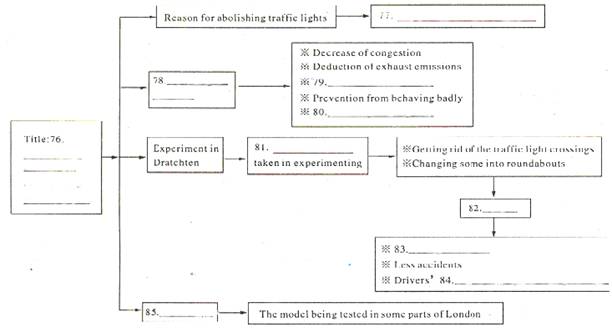题目内容
There are many theories about how drama (戏剧) came into being in ancient Greece. The one most widely accepted today is based on the assumption that drama developed gradually from ceremonies. The argument for this view goes as follows.
In the beginning, human beings viewed the natural forces of the world as unpredictable, and they sought through various means to control these unknown powers. Those measures which appeared to bring the desired results were then kept and repeated until they hardened into fixed ceremonies. Eventually stories arose which explained the mysteries of the ceremonies. As time passed, some of them were abandoned, but the stories, later called myths (神话), provided materials for art and drama
Those who believe that drama came out of ceremonies also argue that those ceremonies contained the seed of theater because music, dance, and masks were almost always used. In addition, there were performers, and, since considerable importance was attached to avoiding mistakes in the rules of ceremonies, religious leaders usually assumed that task. Wearing masks, they often impersonated (扮演) other people, animals, or supernatural beings, and performed the desired effect by gestures -- success in hunt or battle, the coming rain, the revival (复活) of the Sun -- as an actor might. Eventually such dramatic representations were separated from religious activities.
Another theory finds out the theater came from the human Interest in storytelling. According to this view, tales (about the hunt, war, or other events) are gradually formed, at first through the use of impersonation, action, and dialogue by a speaker and then through the assumption of each of the roles by a different person A closely related theory about drama traces to those dances that are primarily rhythmical and gymnastic or that are imitations (模仿) of animal movements and sounds.
1.Which of the following is Not true according to the passage?
A.Three theories about how drama came into being are mentioned.
B.The majority of people believe drama came from ceremonies.
C.Stories were made up to explain the mysteries of the ceremonies.
D.Religious activities developed gradually from ceremonies.
2.We can infer from the passage that ______.
A.all measures couldn't bring the desired results
B.religious leaders usually didn't perform in the ceremonies
C.mistakes are unavoidable in the religious ceremonies
D.performers usually used languages to reach the desired results
3.The underlined part "traces to" in the last paragraph is closest in meaning to ______.
A.dates back to B.is devoted to C.gives way to D.is familiar to
4. The best title for the text would be ______.
A.The Development of Drama B.The History of Drama
C.The Origin of Drama D.The Popularity of Drama
1. D
2.A
3.A
4.C
【解析】
试题分析:这篇文章讲的是戏剧是怎么形成的,有的理论认为戏剧来自于仪式,也有人认为戏剧是人类讲故事的兴趣。
1.细节题:从第二段的句子:The one most widely accepted today is based on the assumption that drama developed gradually from ceremonies. 可知是戏剧从仪式中逐渐演变而来。选D
2.细节题:从第二段的句子:Those measures which appeared to bring the desired results were then kept and repeated until they hardened into fixed ceremonies.可知似乎能到来想要的结果的措施被保留下来了。可知不是所有的措施都是有效的。选 A
3.猜词题:最后一段的句子:Another theory finds out the theater came from the human Interest in storytelling.其中的came from和 traces to是相近的意思,就是“来自,追溯到”所以选A
4.主旨题:从文章第一段的句子:There are many theories about how drama (戏剧) came into being in ancient Greece.可知这篇文章讲的是戏剧是怎么形成的。选C
考点:考查文化类短文
点评:这篇文章讲的是戏剧是怎么形成的,有的理论认为戏剧来自于仪式,也有人认为戏剧是人类讲故事的兴趣。文章分析了具体的现象。测试考生在阅读基础上的逻辑推理能力,要求考生根据文章所述事件的逻辑关系,对未说明的趋势或结局作出合理的推断;或根据作者所阐述的观点理论,对文章未涉及的现象、事例给以解释。考生首先要仔细阅读短文,完整了解信息,准确把握作者观点。

 浙江名校名师金卷系列答案
浙江名校名师金卷系列答案